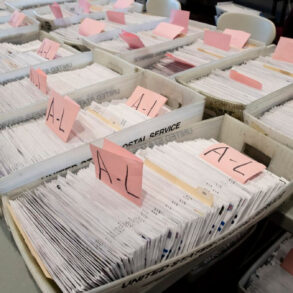Trying to shoehorn an income component into utility rates converts ‘ratepayers’ into ‘taxpayers’
Last week the Globe reported that Southern California Edison, Pacific Gas & Electric and San Diego Gas & Electric had just filed a proposal to create income-based utility billing.
Currently, utility bills are based on electricity and gas consumption. The utility companies are now proposing income-based utility billing so that higher-income earners pay for more than they use, subsidizing the rates for lower income customers.
This outrageous proposal isn’t the only of its kind. The Biden Administration is proposing a tax (penalty) for having good credit. Mortgage borrowers with good credit will pay higher fees so borrowers with lower credit scores can get loans.
We reported on a 2021 report from the University of California at Berkeley recommending that the state link California’s highest-in-the-nation electricity bills to customer incomes – ie. your ability to pay.
Authors Severin Borenstein (an economist), Meredith Fowlie, and Jim Sallee of the UC Berkeley and the Energy Institute at Haas admit that California’s electricity rates are so high, lower-income households pay a larger share of their income on electricity.
Rather than using all available energy sources to create energy abundance, the Berkeley report proposes “cutting back on the volumetric per-kilowatt-hour charges on customers’ bills and recovering the missing money through constructs tied to customers’ income.”
And the Legislature and Governor approved this scheme through AB 205, which was signed by Gov. Gavin Newsom in June of last year claiming it was needed because the wild swings in utility prices that California experiences.
California has the highest electricity rates in the country. “Those costs could rise even faster over the next decade, as utilities harden their grids against wildfires, grow their share of net-metered rooftop solar and add other costs that will be passed through to utility customers,” Next 10 reported over two years ago.
Since we reported last week, many have recognized “the state’s perpetual march toward a collectivist state,” as Jon Coupal just reported.
Coupal, President of the Howard Jarvis Taxpayers Association, explains AB 205 is even worse because the bill “bypassed many of the normal procedures for enacting legislation. It did this because it was a so-called ‘budget trailer bill.’”
“While the ‘budget bill’ is constitutionally mandated to be enacted by June 15, it only passes by that date for one reason — so the legislators can continue to receive their paychecks.”
“Moreover, after the enactment of the budget, there are so-called ‘junior budget bills’ amending the fake June 15th budget as well as last-minute ‘budget trailer bills’ directing the spending of billions in ways that the budget bill itself did not direct.”
“AB 205, the ‘energy trailer bill,’ received scant public attention and no meaningful public hearings were held. But its impacts are profound, and not in a good way.”
Is this new utility charge a tax or fee?
Coupal explains:
“Trying to shoehorn an income component into utility rates converts ‘ratepayers’ into ‘taxpayers,’ and Californians have had their fill of high taxes.”
The difference between a tax and a fee is more than semantics.
Taxes are imposed for generalized government services like education, public safety, transportation, and even for a reasonable safety net for the less fortunate.
But a “fee” or “charge” has always correlated to the receipt of a specific service.
There is some good news in the face of California’s race to Marxism. Coupal explains:
“A coalition of taxpayer and business organizations have already qualified the Taxpayer Protection and Government Accountability Act (TPA) for the 2024 ballot. Among its many provisions is not only further clarification of what a ‘tax’ is but also a provision that requires any tax to be approved by a legislative body rather than some administrative agency or other authority not directly accountable to voters.”
California’s politicians and unelected agency leaders are limiting energy sources rather than using an all-of-the-above approach to energy production in California: Oil, gas, coal, nuclear, hydroelectric, solar and wind.
If all we are allowed to use is renewable energy for electricity production – a deliberate energy shortage – statewide shortages and rolling blackouts inevitably become the new California normal. “We are being conditioned to accept this as normal by some very evil leaders,” we said. Fortunately, Jon Coupal says “this battle on behalf of California’s beleaguered taxpayers and ratepayers is not over.”
Original Article: https://californiaglobe.com/articles/tax-fighter-warns-big-problems-for-californias-income-based-utility-rates/




